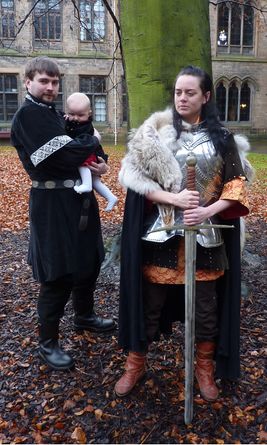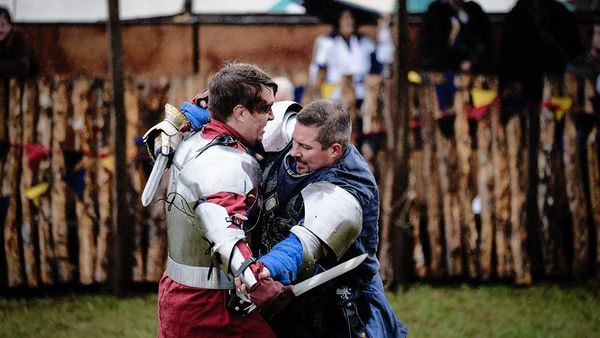Dawn leadership
No edit summary |
|||
| Line 18: | Line 18: | ||
Each [[territory]] in Dawn sends a single [[Senator]] as representative to the [[Imperial Senate]]. Any Dawnish character may stand as senator for a territory - but only characters who are nobility may pledge their support. Each noble indicates their support by standing with their preferred candidate, the candidate with the most support from the assembled nobility is appointed senator. | Each [[territory]] in Dawn sends a single [[Senator]] as representative to the [[Imperial Senate]]. Any Dawnish character may stand as senator for a territory - but only characters who are nobility may pledge their support. Each noble indicates their support by standing with their preferred candidate, the candidate with the most support from the assembled nobility is appointed senator. | ||
Voting will be preceded by a grand tourney on the Saturday of the summit to which all the nobility who dwell in the territory being elected are invited to take part. The Dawnish egregores will ask the weavers of Dawn to create a suitable magical item with which the weavers can gird the winner of the tourney as the | Voting will be preceded by a grand tourney on the Saturday of the summit to which all the nobility who dwell in the territory being elected are invited to take part. The Dawnish egregores will ask the weavers of Dawn to create a suitable magical item with which the weavers can gird the winner of the tourney as the territory's champion for the following year. | ||
After the tourney is complete, troubadours will be invited to present senatorial candidates to the assembled host, with each given a minute to pronounce the deeds of glory that their aspirant has achieved. When the troubadours have finished, the nobility will then stand behind the claimant they believe will bring most glory to Dawn. Yeofolk present will be expected to assist in identifying the victor and ensuring that the rolls of honour record every noble who stood in support of them. | After the tourney is complete, troubadours will be invited to present senatorial candidates to the assembled host, with each given a minute to pronounce the deeds of glory that their aspirant has achieved. When the troubadours have finished, the nobility will then stand behind the claimant they believe will bring most glory to Dawn. Yeofolk present will be expected to assist in identifying the victor and ensuring that the rolls of honour record every noble who stood in support of them. | ||
| Line 24: | Line 24: | ||
Nobles may vote in each election for any candidate, but any character who has voted in support of a winning candidate may not vote again for a year. | Nobles may vote in each election for any candidate, but any character who has voted in support of a winning candidate may not vote again for a year. | ||
The political battlefield of the Senate is one that is difficult for many nobles to master. Dawnish | The political battlefield of the Senate is one that is difficult for many nobles to master. Dawnish senators are often supported by an [[advocate]] - a yeofolk who makes a study of the Senate and the history of the Empire. While the nobles make impassioned speeches on the Senate floor, it is their retainers who help them prepare those speeches and work hard to ensure that the political realities of Imperial life do not scupper the nobles' plans. | ||
The senators for each Imperial territory are re-elected at specific | The senators for each Imperial territory are re-elected at specific equinoxes and solstices during the year. The senator for [[Weirwater]] is elected at the Summer solstice, the senator for [[Semmerholm]] is elected at the Autumn equinox, and the senator for [[Astolat]] is elected at the Winter solstice. | ||
==Prominent Dawnish houses== | ==Prominent Dawnish houses== | ||
Revision as of 20:47, 26 August 2018
Overview
Dawn is dominated by powerful noble houses. The houses manage their great estates and raise soldiers to fight for the Empire. Membership of a noble house is achieved by passing the house's Test of Mettle, although a degree of status is assumed by those sons and daughters who have been raised in a house (who are technically yeofolk until they pass their test).
Each house sets its own test and only the behaviour of those who have passed the test reflects on the house. As a result a house must keep the tests difficult to maintain its reputation. Those houses that make the tests too easy face the very real risk of having no children placed with them by other nobles - no Dawn parent would want to place their child with a house that is tarnished by mediocrity.
Houses are lead by an Earl who is selected from among the members of that house. Earls usually dedicate themselves to the advancement of their noble house. It is the responsibility of the Earl to set tests such as the Test of Mettle and the Test of Ardour. The accomplishments of a House reflect directly on its Earl, an acknowledgement of the role that the Earl plays in ensuring that every member of the house is given the support they need to triumph. Likewise the bearing with which an Earl comports themselves reflects on the whole house, so Earls are expected to take their responsibilities seriously, to conduct themselves with gravitas and to expect and receive respect from their fellow Dawnish.
Some houses also choose to appoint an heir-presumptive, an individual who the house agrees will take over the Earlship if the current Earl is no longer able to perform their duties. The heir-presumptive is often a staunch ally of the Earl, someone chosen to bolster their control of the house. But the role can just as easily serve the opposite function, some nobles choose an heir-presumptive to signal the limitation of the Earl's power and what might happen if they overstretch their authority.
Only nobles become Senators or Generals, although Imperial law prevents this being mandatory. While it is theoretically possible for a yeofolk to be chosen for high office, a yeofolk who showed the qualities that made them eligible for such a position would almost certainly be approached by Dawnish noble houses keen to attract a rising star whose glory would reflect well on them.
The Synod and the Conclave, by contrast, are open to both yeofolk and noble alike, although again a yeofolk who rose to prominence in one of these structures would likely attract a great deal of attention from the Dawnish nobility.
By contrast, it is considered demeaning for nobles to involve themselves in the business of the Bourse. Making money is simply not considered glorious in Dawn, it is the business of yeofolk and not something that nobles should be worrying about. A noble who spent too much time in the Bourse might cause others to question their commitment to glory and to the furtherance of their house's goals.
Leading a territory
Each territory in Dawn sends a single Senator as representative to the Imperial Senate. Any Dawnish character may stand as senator for a territory - but only characters who are nobility may pledge their support. Each noble indicates their support by standing with their preferred candidate, the candidate with the most support from the assembled nobility is appointed senator.
Voting will be preceded by a grand tourney on the Saturday of the summit to which all the nobility who dwell in the territory being elected are invited to take part. The Dawnish egregores will ask the weavers of Dawn to create a suitable magical item with which the weavers can gird the winner of the tourney as the territory's champion for the following year.
After the tourney is complete, troubadours will be invited to present senatorial candidates to the assembled host, with each given a minute to pronounce the deeds of glory that their aspirant has achieved. When the troubadours have finished, the nobility will then stand behind the claimant they believe will bring most glory to Dawn. Yeofolk present will be expected to assist in identifying the victor and ensuring that the rolls of honour record every noble who stood in support of them.
Nobles may vote in each election for any candidate, but any character who has voted in support of a winning candidate may not vote again for a year.
The political battlefield of the Senate is one that is difficult for many nobles to master. Dawnish senators are often supported by an advocate - a yeofolk who makes a study of the Senate and the history of the Empire. While the nobles make impassioned speeches on the Senate floor, it is their retainers who help them prepare those speeches and work hard to ensure that the political realities of Imperial life do not scupper the nobles' plans.
The senators for each Imperial territory are re-elected at specific equinoxes and solstices during the year. The senator for Weirwater is elected at the Summer solstice, the senator for Semmerholm is elected at the Autumn equinox, and the senator for Astolat is elected at the Winter solstice.
Prominent Dawnish houses
A list of well-known noble houses who have attended Anvil in recent years can be found here.

